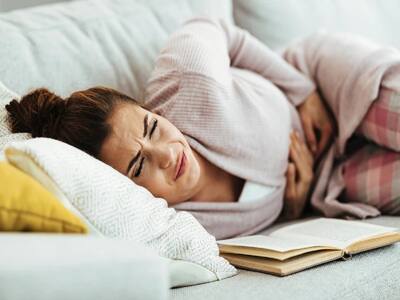Don’t Miss Out on the Latest Updates.
Subscribe to Our Newsletter Today!
Periods In Winter: Things You Can Do To Reduce Pain And Discomfort

The drop in temperature drops can take a toll on your menstrual cycle. Here are expert tips to reduce period symptoms in winter.
The cold weather and inactive lifestyle (moving less and eating more) during winters can take a toll on your health. Did you see any changes in your menstrual cycle? Many women experience more Premenstrual symptoms (PMS), longer periods, or more painful cramps during the winter season. This is because the change of season affects your menstrual cycle too. Reduced exposure to sunlight can lead to deficiency of Vitamin D, which can cause hormonal imbalance and make your period last longer. Lack of Vitamin D can cause calcium deficiency, which can cause worsen PMS. As the temperature drops, the blood vessels will stiffen and obstruct blood flow, leading to increased period pain.
Dr. Alka Tiwari, a general practitioner empaneled with Mildcares (GynoCup), has shared a few tips to lessen these symptoms and feel better during menstruation. Mild Cares is a startup founded by Sandeep Vyas, who is the current CEO of the company. It aims to address unaddressed menstrual, intimate, and toilet hygiene issues faced by women in India, through innovative products.
Things you can do to reduce period symptoms in winter
To avoid those annoying period symptoms in winter, Dr. Tiwari suggested:
Also Read
- Drinking plenty of fluids to stay hydrated to keep dehydration at bay.
- Including more fruits and vegetables in your diet to avoid bloating and indigestion.
- Using a hygiene wash to maintain immaculate hygiene during menstruation and even after it has ended.
- Taking warm showers which will help ease body aches and offer warmth and comfort.
- Cramp relief oil has anti-inflammatory properties that can help alleviate menstrual spasms or cramps. You can apply a few drops of the oils and massage your lower abdomen.
- Get regular exercise but avoid heavy workouts during menstruation.
- Make sure to have a healthy, balanced diet to keep your energy levels up.
- Most importantly, take time for yourself and engage in activities that you enjoy and that make you feel good.
- Proper rest and sleep will help the body to recover from fatigue and pain during the period.
Use menstrual cups instead of pads or tampons
Dr. Tiwari noted that menstrual cups are more comfortable and eco-friendly alternatives to disposable pads or tampons.
If you're using a menstrual cup, she advises against using harsh soaps or chemicals for cleaning the product. The expert recommend that you should use cup-specific menstrual cup wash, which is formulated to clean the cup without damaging it.
Remember that it's okay to take a break and take care of yourself during your period. And, if your period is causing you undue pain or discomfort, or is interfering with your daily life, it's best to seek advice from your healthcare provider to rule out any underlying issues.


